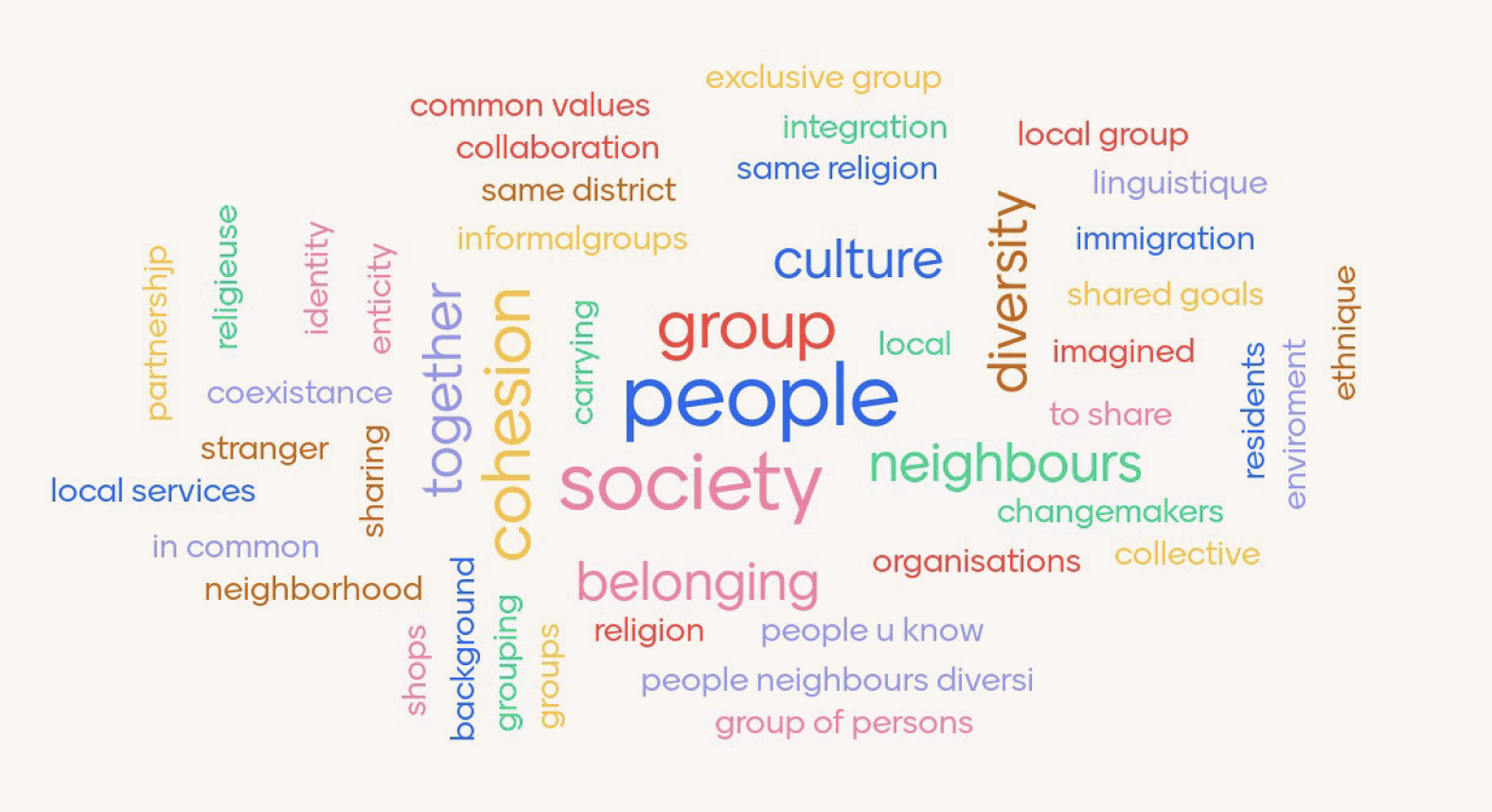November 2023 – Even though violent radicalisation is often fuelled by global events, its strongest and most direct impact is felt at the local level. How can local governments prevent it?
The EU-funded icommit project, in which Efus was a partner, offers practical recommendations and a set of user-friendly tools specifically designed for local and regional authorities.
Local prevention
While national governments are responsible for developing policies to address violent extremism, local and regional authorities are the first, most direct level of prevention since all extremist activities emerge and grow in a given city and neighbourhood, even though they are in large part fuelled online.
Multi-stakeholder cooperation
It has long been established that the most efficient way to carry out such local prevention is through local partnerships that gather a wide range of organisations and professional disciplines. However, experience shows that establishing and managing efficient and productive multi-stakeholder partnerships is not an easy feat. This is where the icommit project, which was funded by the European Commission’s Internal Security Fund and led by the Violence Prevention Network (VPN, Germany), comes into play.
How the project worked
Over a period of 21 months (January 2022-September 2023), VPN and its partners* developed two complementary lines of work: the first consisted in building and strengthening collaboration within local multi-stakeholder networks across all three prevention levels (i.e., primary, secondary and tertiary prevention**); the second consisted in supporting case workers intervening with individuals at risk of or convicted for violent extremist activities.
Eight European cities*** were involved in the first strand of the project, and 20 case workers from various European countries took part in the second one. Furthermore, six experts/mentors provided advice and support for the three training sessions organised for municipal teams and case workers, as well as more broadly throughout the project.
A practical manual
One of the project’s main results is a practical manual, titled Walk a Mile, which provides detailed guidance and user-friendly tools for both multi-stakeholder collaboration and case work in the field of the prevention and countering of violent extremism (P/CVE).
It summarises the contents of the trainings offered to the project’s participating cities and case workers, including a set of tools and exercises, and can be used by any interested local or regional authority for their own training programmes or to inform and eventually adjust their P/CVE policies and programmes.
A comprehensive training programme
Regarding the first strand of the project, i.e., multi-stakeholder collaboration, icommit proposes eight training modules built around the priorities one should set and follow when setting up and/or managing a cross-disciplinary partnership to deal with extremist violence.
The manual describes the contents of each module in a reader-friendly manner, which means anyone can use the guidance and insights it provides according to their own context and needs.

The DesistCards: a game of cards for case workers guiding individuals out of violent extremism.
Principles of multi-stakeholder collaboration
The modules cover the following themes, which summarise the most important principles of multi-stakeholder collaboration:
1 – Walk a mile in your colleagues’ shoes, i.e., learning to know and understand partners who come from different organisations and professional backgrounds
2 – Speaking the same language, i.e., sharing the same understanding and terminology around notions such as ‘terrorism’
3 – Looking through a gender lens, i.e., always being mindful of the critical importance of gender in radicalisation, recruitment and participation in violent extremism and terrorism
4 – Understanding your local risk picture, i.e., acquiring a clear view of the individual, social and global factors that fuel radicalisation leading to violence in your particular city/region.
5 – Introduction to Theory of Change models: this might sound a bit theoretical, but it just means models that help you conceptualise the logical connections between what you are going to do (activities) and what you want to achieve (goals). Outcomes are the logical steps between your activities and goals.
6 – Putting things into practice i.e., during a training, using scenarios in which trainee teams have to work together to solve a fictional situation
7- Working with communities, i.e., the importance of engaging with the communities that are most affected by violent extremism
8 – Gaining political buy-in, i.e., the importance of having the backing of your local political leaders
Casework: the DesistKit
Regarding the project’s second strand, i.e., casework, the icommit partners have developed a practical tool called DesistKit that case workers can use when handling individual cases. This kit comprises three elements: a manual, a PowerPoint tool called CaseReflector that focuses on the factors that can lead an individual to distance themselves from violent extremism, and lastly the DesistCards, which is a set of playing cards that case workers can use as a basis when counselling an individual and guiding them out of violent extremism.
All the information contained in the CaseReflector and DesistCards is based on research, either through previous EU-funded projects or through universities and research centres.
Focused on the present and the future
One of the main aspects of the DesistKit is that rather than delving on why and how an individual has become radicalised to the point of violence, it explores the assets they have in and around themselves at the present moment and the factors that could lead them in the near future to distance themselves from extremist groups and ideologies. Such factors can be, for example, family bonds, satisfaction with work, or the recognition of oneself by others.
Language and gender sensitive
Another characteristic of the DesistKit is that it uses a language that does not stigmatise, alienate, or demotivate the individual and does not use judgmental terms such as extremist or terrorist.
Furthermore, the tool is gender sensitive, which means it recognises that gender roles, norms, inequalities and expectations impact people’s lives and that programmes and practices should therefore be designed to address gender-specific factors.
User-friendly factsheets
Apart from the Walk a Mile publication, the icommit partners have produced five factsheets that describe the case studies of three of the project’s partner cities – Luton (UK), Mechelen (Belgium), and Strasbourg (France) –, and give a concise presentation of multi-stakeholder collaboration models and of the DesistKit.
All these resources are available (in English, French and German) to Efus members and any other interested party.
Further reading
- LOUD – When local authorities and young people from nine European cities mobilise against intolerance and extremism (Efus, 2021)
- BRIDGE – Understanding and addressing polarisation at the local level (Efus, 2021)
- PRACTICIES – Partnership Against Violent Radicalisation in Cities (Efus, 2020)
- PREPARE – Preventing Radicalisation in Probation and Release (Efus, 2019)
- Prevention of violent radicalisation – Methodological guide for the development of a local strategy (Efus, 2017)
- Preventing and Fighting Radicalisation at the Local Level (Efus, 2016)
* Led by the Violence Prevention Network, the icommit project gathered as partners the European Forum for Urban Security (Efus), the German centre for Applied Research on Deradicalisation modus zad, and the University of Bucharest (Romania).
** Primary prevention refers to activities such as the promotion of social cohesion. Secondary prevention refers to interventions with individuals at risk or already on the pathway of radicalisation. Tertiary prevention means interventions with radicalised individuals, including convicted extremist and terrorist offenders.
*** Berlin (Germany), Dublin (Republic of Ireland), L’Hospitalet (Spain), Liege (Belgium), Luton (United Kingdom), Mechelen (Belgium), Skopje (North Macedonia), and Strasbourg (France)

